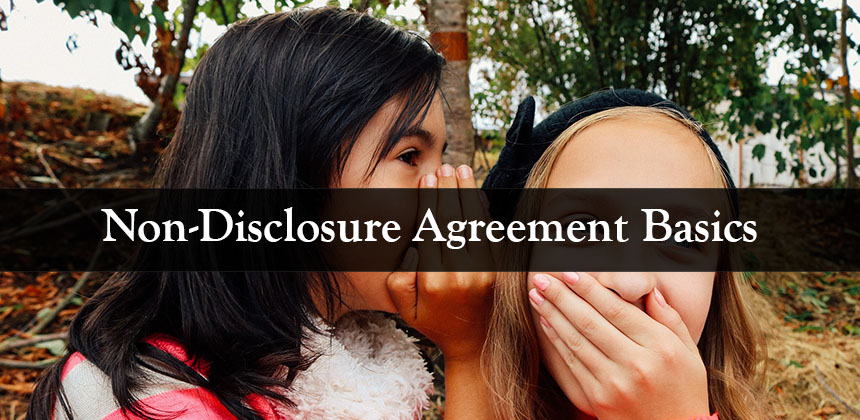
If you have a need to share confidential information in the course of your business (for example when working with vendors or other third-party service providers, independent contractors, or when engaging in merger/acquisition discussions) but want to protect the confidential treatment of information shared, a non-disclosure agreement (“NDA”) can help protect your interests.
What is a NDA?
NDAs are legal agreements in which one or both parties to the contract agree not to divulge or use confidential information obtained through the working relationship in any manner other than those described in the agreements, usually for a set period of time.
Mutual NDA vs. Unilateral NDA
NDAs can be “mutual” or “unilateral.” In a mutual NDA, both parties share confidential information with each other, and both agree to abide by the terms of the agreement regarding disclosure of confidential information. This type of agreement is commonly used in situations where businesses are exploring mergers or other business combinations.
In a unilateral NDA, only one party is sharing confidential information with the other, who agrees not to disclose that information. Unilateral NDAs may be used when a business works with an independent contractor to complete projects for the business if, during the course of the project, the contractor might encounter proprietary or confidential information about the business.
Four key elements to look for in an NDA
While it is always recommended to consult a business lawyer when presented with a NDA, we understand that this is not always possible. While no two NDA’s are the same, there are four key provisions found in most NDA’s. Knowing the existence of these key provisions could help you in reviewing an NDA you are presented with without a business attorney. The four key clauses that you should look out for in any NDA include:
Definition of “Confidential Information”
The information to be kept confidential should be clearly specified and described, so there is not ambiguity later about whether something was or was not confidential. Another aspect to consider is whether “trade secrets” or other intellectual property is being considered a part of the confidential information – as sometimes these are allotted different protections.
Exclusions from “Confidential Information”
It would be impractical to consider all information obtained to be “confidential”, so most NDAs include exclusions from the definition. The most common exclusion is for any information obtained prior to, or independently from, the relationship that gave rise to the agreement in the first place. Other exclusions include information that falls within the public domain or is already apparent to the party receiving the information, prior to when the disclosure of information took place.
Obligations of the receiving party
The NDA should be clear about the expectations for the party receiving confidential information, including maintaining confidentiality and not using the information for any purposes other than those specified.
Time periods
The agreement should specify both the time period for the agreement itself, and the time period for how long the confidential information must be protected. A red flag should come up when these two time periods are not separated out and grouped together – as this could present complications for both parties going forward.
Conclusion
If you have been asked to sign a NDA, or if you think you need to enter into one with someone else, contact a business lawyer who has experience reviewing contracts, and who can help ensure any agreements you sign appropriately protect your interests.
At Cordero Law, our attorneys are ready able to assist you with the entire NDA process. For more information, contact us today.
—
Julian Cordero is an Attorney, Business Strategist, and Music Producer. Oh and he blogs too! Julian is licensed to practice law in New York and is the Managing Attorney of Cordero Law LLC, a New York City based law firm focusing on Business Law, Entertainment Law, and Intellectual Property Law.

In order not to pay for legal advise about NDA, you can just read up and down this article https://vironit.com/nda-agreement-template-some-basic-tips-on-how-to-make-an-nda-contract-within-copyright-law/